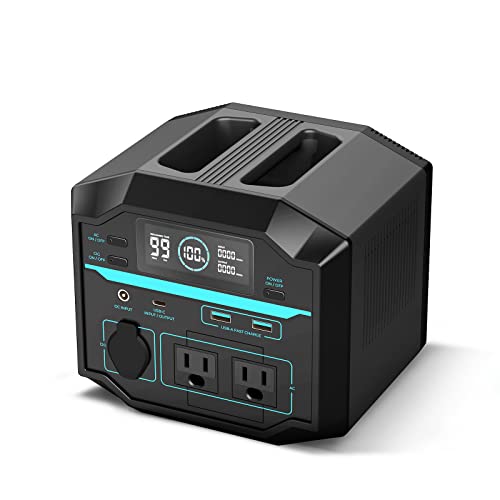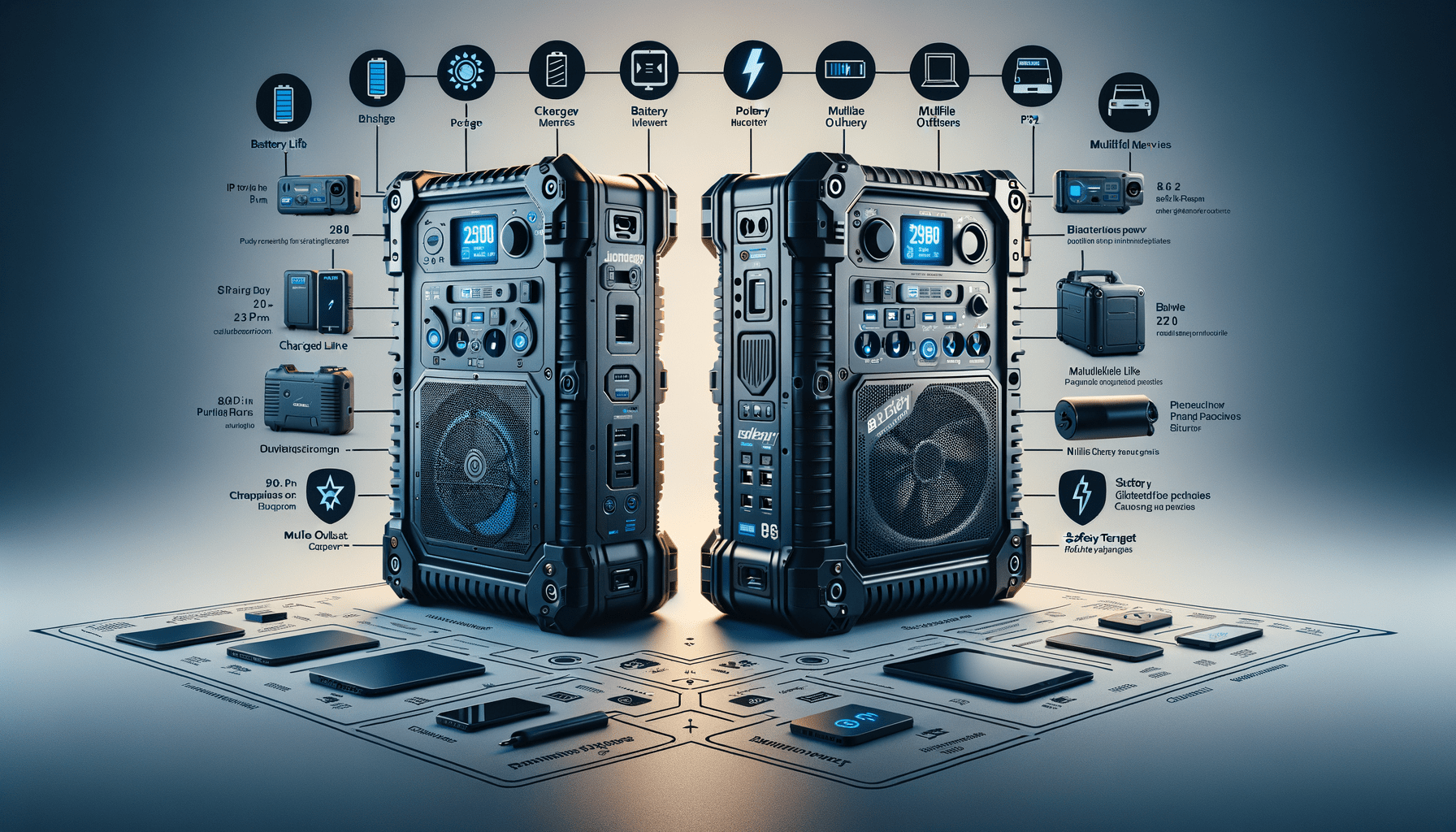In the search for portable power, adventure-seekers and eco-conscious users are met with an array of options. Two notable contenders battling for supremacy in this burgeoning market are the Renogy 200 and the Bluetti EB70S. Both offer the promise of energy freedom for activities ranging from camping trips to emergency preparedness. This technical comparison aims to provide a semi-technical audience with a clear understanding of these two products to make an informed purchasing decision.
Design and Portability
When it comes to taking power on the go, the physical specs of a device are crucial. The Renogy 200 boasts a lightweight and compact frame, weighing in at just 5.3 pounds and sized at 7.48 x 6.10 x 6.99 inches, which makes it a breeze to carry around. In contrast, the Bluetti EB70S tips the scales at 21.4 pounds with dimensions of 12.6 x 8.5 x 8.7 inches. It’s heavier, undoubtedly, but also brings more power to the table—something we’ll explore further.

Power and Capacity
The heart of any portable power station is its battery capacity and output potential. Here, the two contenders differ significantly, with the Renogy 200 offering a modest 222Wh capacity and a 200W AC outlet, capable of surging up to 400W. On the other hand, the Bluetti EB70S is a powerhouse with a 716Wh capacity and a total of 800W spread across four AC outlets, surging to an impressive 1,400W. If you need to keep more devices running for extended periods, the EB70S has the edge.
Charging Options and Speed
Both power stations are versatile in how they can be charged, including via AC adapter, car charging, and solar panels. The Renogy 200 can reach 80% charge in only 1.5 hours if you maximize AC and USB-C inputs, which is blazing fast. Conversely, the Bluetti EB70S takes 4-4.5 hours to fully charge by wall socket or solar power in optimal conditions; it’s slower but given the larger capacity, that’s pretty efficient.
Connectivity and User Interface
The user interface can make or break the experience with power stations. The Renogy 200 features a clear LCD display that outlines battery levels, input and output power, and recharging times. For the Bluetti EB70S, you have the convenience of a wireless charging pad on top of multiple USB-C and USB-A ports, making it incredibly versatile. Both lack app control, but they compensate with an array of physical connectivity options.
Eco-Friendly and Safety Features
The Renogy 200 and the Bluetti EB70S both pride themselves on being eco-friendly, able to utilize solar panels to recharge. Safety features on both units include over-voltage, over-current, and short-circuit protection, while the Renogy adds specific protections like reverse polarity and high/low-temperature protection. The Bluetti steps up with its ultra-stable LiFePO4 battery chemistry promising over 2,500 life cycles.
| Feature | Renogy 200 | Bluetti EB70S |
|---|---|---|
| Battery Capacity | 222Wh | 716Wh |
| Weight | 5.3 pounds | 21.4 pounds |
| Dimensions | 7.48 x 6.10 x 6.99 inches | 12.6 x 8.5 x 8.7 inches |
| AC Outlet | 200W with 400W surge | 800W with 1,400W surge |
| Charging Speed | 80% in 1.5 hours (AC+USB-C) | 100% in 4-4.5 hours (AC or solar) |
| Safety Features | Multi Intelligent BMS Protection | BMS with LiFePO4 stability |
| Connectivity | USB-A, USB-C, CIG Port | USB-A, USB-C, Car Outlet, DC5521, Wireless charging |

Conclusion: Deciding the Best Fit for You
Deciding between the Renogy 200 and the Bluetti EB70S comes down to assessing your needs. If portability, quick charging, and sufficient power for smaller gadgets are priority, then the Renogy might be your match. But, if you’re looking for a unit to back up more energy-hungry appliances or last longer during adventures, the Bluetti has the upper hand. Both represent strides in off-grid power technologies and can be valuable assets, depending upon use-cases and demands.


Leave a Reply